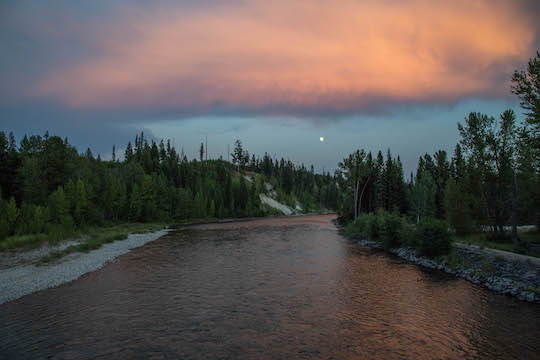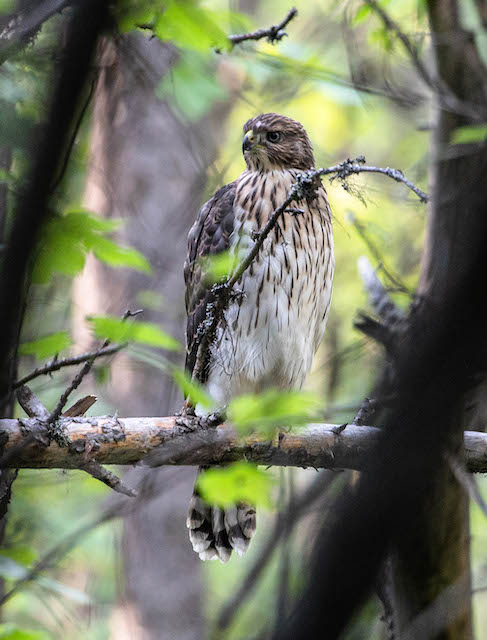After completing a 14.5 mile hike, you might assume we would be tired and done for the day. Part of that assumption is correct: we were tired. However, we were not so tired that the day was over. The big hike to Gunsight Lake and Florence Falls had been a lot of fun, but we finished early enough in the afternoon that we still had many hours of daylight left. Before any further adventuring though, we wanted to eat some more. Lunch had been completed on the return hike from Gunsight Lake, and we were starting to get hungry again.
Relaxing in Camp and Eating Yet Again
The drive back to camp was completed as quickly as one can under the conditions, and we were soon devouring another delicious meal featuring burritos. This had become a big favorite for us on this trip. We eat a lot of them anyway, but they had turned into a quick and easy but delicious meal with good nutrition after the big hikes we had been doing. An ample amount of black beans, lettuce, tomato, a little shredded cheese, avocado, and either salsa or Taco Bell sauce provided plenty of calories.
While we were relaxing in camp, I decided to try and get some pictures of the wildlife around camp. I was particularly interested in a little oven bird that had been hanging around. While I got a picture or two, they didn't turn out nearly as well as that of a robin that was hanging around. Here is what that one looked like.
 |
| American Robin ©2020 David Knapp |
Late Day Drive to Polebridge
After lunch and a little time to sit and enjoy the birds, we started thinking about an evening adventure. With nothing better to do, we headed back up to Polebridge. We drove up there far more than was probably necessary, but we enjoyed the late day drives and the scenery was beautiful. The first trip had produced some good fishing, but in subsequent trips I simply enjoyed the drive.
On this evening, we again struck out on wildlife. This trip produced less wildlife encounters than we had hoped, but the scenery more than made up for that. Being there in the middle of the heat of summer probably didn't help. Without any wildlife to keep us occupied, the highlight of the evening ended up being the sunset.
Sunset at Polebridge
The evening was beautiful even before the sunset. We drove south along Inside North Fork road, hoping for some critters. The one bit of excitement happened when the road passed Winona Lake. We thought for sure a moose had to be feeding there, but it wasn't our day apparently. The waterfowl there were interesting, though, and kept us occupied for a bit. With darkness approaching, we didn't really want to drive all the way back in the dark. After turning around at the Quartz Creek Campground, we were soon back to the bridge over the North Fork of the Flathead. Looking upstream and downstream, we saw one of the best sunsets we enjoyed on this trip. The camera didn't come close to capturing the beauty of the moment, but we and some others on the bridge tried anyway. Distant thunderstorms up over Canada were on the horizon to the north, while the moon was coming up over the river to the south.
 |
| North Fork Flathead River at Sunset ©2020 David Knapp |
 |
| Moonrise and Sunset on North Fork Flathead River ©2020 David Knapp |
After enjoying this beautiful scenery, we turned towards camp. We had one full day left and wanted to get well-rested so we could make the most of it. The next day would be tied for my favorite hike in Glacier National Park with the Sperry Glacier day we had already completed.




